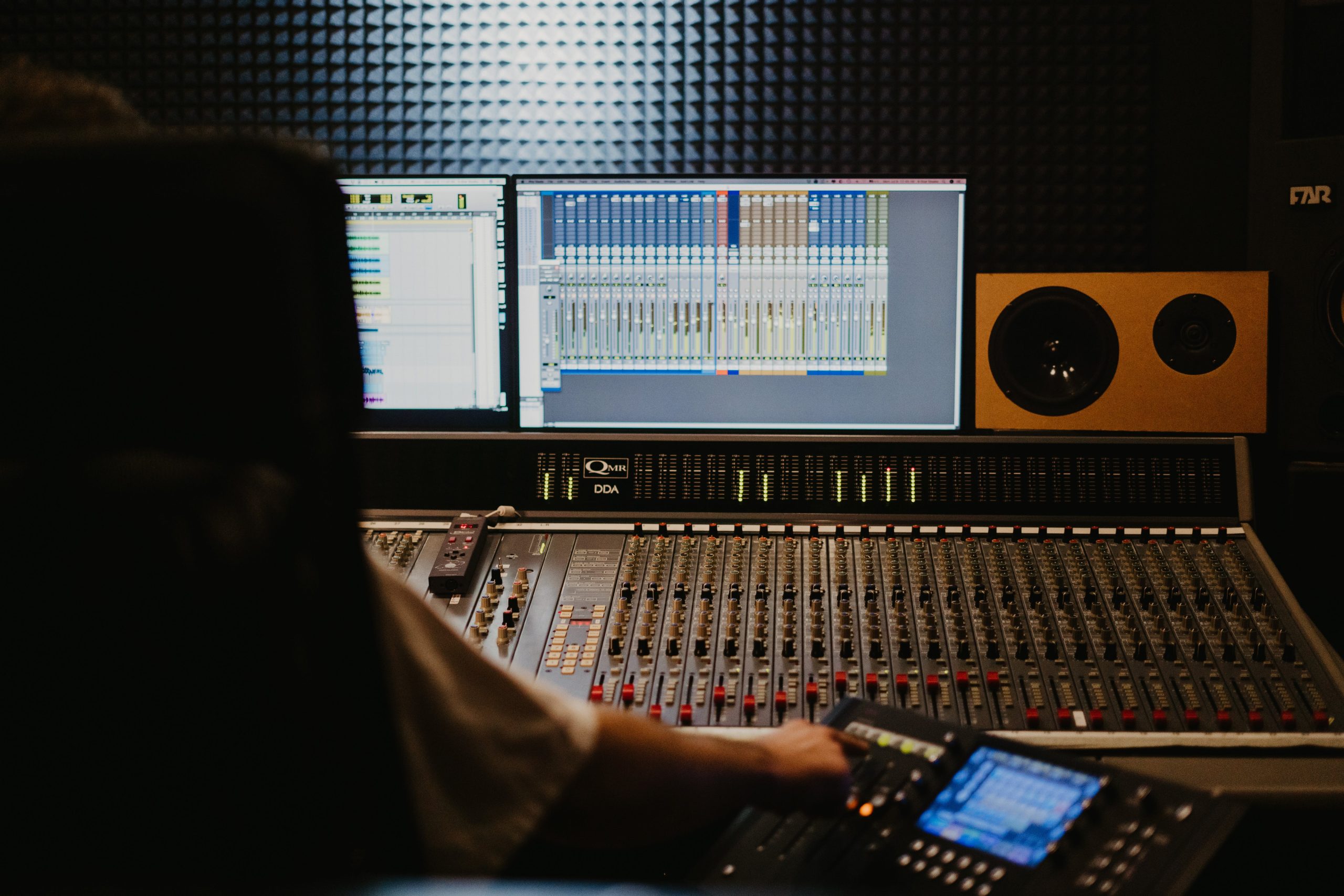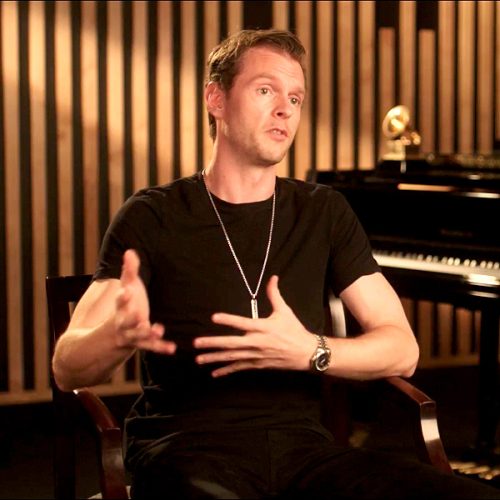Overview
Guide to Being a Sound Engineer
A.K.A.

What Is a Sound Engineer?
We don’t play favorites at The Recording Academy(R), but we love sound engineers. They are the wizards of the audio world, the masters of sonic manipulation, and the creative geniuses behind your favorite songs, concerts and films. They are the unsung heroes who work tirelessly to ensure that the music we love, the movies we watch, and the live performances we attend sound absolutely perfect. A sound engineer is essentially responsible for capturing, recording, mixing, and reproducing sound in various settings such as recording studios, concert halls, theaters, and even sports arenas.
Discover GRAMMY GO courses exclusively on Coursera
So, what does a sound engineer actually do?
They wear many hats and have a range of responsibilities. Firstly, they work closely with musicians and artists to achieve the desired sound for their recordings or live performances. They have an incredible ear for detail and use their technical expertise to adjust levels, EQs, and effects to create the perfect balance of instruments and vocals. They also have to ensure that all the equipment is in top-notch condition and troubleshoot any technical issues that may arise during a session or a performance.
But that’s not all! Sound engineers also play a crucial role in post-production work. They meticulously mix and master audio tracks to achieve the best possible sound quality. They work on sound effects, Foley, dialogue editing, and so much more to create immersive experiences in films and television shows. They are the ones who bring life to the visuals and make us feel like we’re right there in the action.
Sound Engineering Roles and Recognition
Sound engineers, in the broadest sense, are pivotal to the creation and finalization of audio content across various media. The Recording Academy(R) Producers & Engineers Wing‘s engineering definitions provide a comprehensive overview of the different roles within sound engineering, shedding light on the specialized expertise and contributions of each. These roles include:
- Recording Engineer: Focuses primarily on capturing sound, working closely with artists to achieve the desired sonic outcomes for recordings. Unlike some engineers, their role may not extend into the final mixing phase.
- Mix Engineer: Plays a crucial role in the post-production phase, blending individual tracks to create a cohesive final product that meets artistic vision and technical standards.
- Mastering Engineer: Acts as the final creative checkpoint before a project’s distribution, making critical adjustments to ensure the recording translates well across various playback systems.
To further emphasize the recognition of sound engineers’ contributions to the music industry, The Recording Academy honors these professionals with two specific categories at the GRAMMYs: Best Engineered Album – Non Classical and Best Engineered Album – Classical. These awards celebrate the excellence and meticulous care engineers bring to non-classical and classical music productions, respectively, highlighting their indispensable role in crafting award-worthy sounds.
The Recording Academy also highlights the critical contribution of engineers to the music industry through GRAMMY certificates and statuettes, acknowledging those who have significantly impacted a GRAMMY-winning recording. Notably, engineers who have worked on more than 51% of an album’s playing time in genre-specific categories or more than 33% for the Album of the Year are eligible for GRAMMY statuettes.
This distinction underlines the depth of technical skill, creative vision, and collaborative effort required to excel in sound engineering. Aspiring sound engineers should aim to understand the nuances of these roles and the critical importance of each stage in the audio production process. The engineer not only collaborates closely with artists and producers but also bridges the gap between a raw musical vision and its final, polished form experienced by listeners. This process involves a blend of technical prowess, aesthetic judgment, and creative collaboration to ensure that every sound element is captured, mixed, and mastered to perfection.
How to Become a Sound Engineer?
If that all sounds good, here’s how to become a sound engineer:
First and foremost, it’s important to have a strong foundation in audio engineering. This can be achieved by pursuing a degree or diploma in sound engineering from a reputable institution, or earning a certificate about music production with courses from GRAMMY GO on Coursera. The key is to get the necessary technical knowledge to excel in the field. From understanding the basics of sound waves to operating complex audio equipment, being a sound engineer requires theoretical knowledge and technical skills.
In addition to formal education, it’s essential to gain practical experience in the industry. Start by interning or volunteering at recording studios, live events, or radio stations. This will give you valuable exposure to real-world scenarios and help you build a network of contacts within the industry. Working alongside professionals will also allow you to learn from their expertise and gain insights into different techniques and equipment.
Another crucial step in becoming a sound engineer is to constantly update your skills and stay up-to-date with the latest technological advancements in the field. Attend workshops, seminars, and conferences to keep yourself informed about new music production software, equipment, and techniques. Additionally, networking events and industry conferences are great opportunities to connect with fellow professionals and potential employers.
Finally, showcase your talent and passion by creating a portfolio of your work. Whether it’s recording and mixing your own music or collaborating with local artists, having a strong body of work will set you apart from the competition. Share your portfolio online through platforms like SoundCloud or YouTube, and don’t be afraid to promote yourself on social media.
Sound Engineer Salary
$95K
AVG

Sound engineers can earn upwards of $130,000/year, depending on experience and location. Across the US, according to Glassdoor, the average salary for a sound engineer is $95,000/year. In music production hotspots, like New York, Los Angeles and Nashville, sound engineers can earn more than $200,000/year.
Pursuing a career as a sound engineer means embracing the craft with passion, often involving extended periods spent in the studio and facing variable job prospects. If you’re someone who truly loves the art and science of sound, this path could be your calling.






















